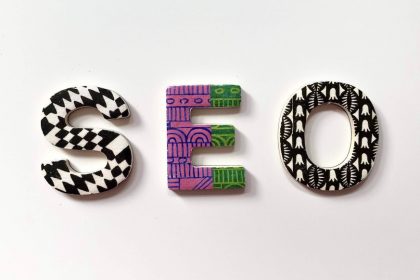Five reasons why SEO is the best way to improve your site’s traffic
How much focus do you place on search engine optimization (SEO)? Here are five reasons why it’s the best way to improve your site’s traffic
There can’t be any business owner, digital marketer or website manager today who hasn’t heard of SEO. But knowing it exists and using it effectively to grow your brand awareness and web traffic are two very different things.
While SEO can seem confusing if you’re new to the subject, at its heart it’s very simple. And with just a small amount of knowledge, you can make some significant progress on your website’s visibility to search engines, and your chances of ranking for your chosen keywords. If you want to take your website to the next level, you can implement an SEO game plan in order to rank higher and get more traffic.
To give you an idea of the power of SEO, here are reasons why it’s is the best way to improve your site’s traffic.
1) You can use keywords to decipher user intent
While SEO is not just all about keywords, they make up the core foundation of SEO, alongside good quality links. They’re also an excellent detective tool when planning content that will attract and interest the right visitors to your website.
For many years, keywords have been used as searcher intent markers that allow Google, Bing, and other search engines to crawl into your content and find out if it is helpful or valuable for online searchers.
However, the use of keywords as searcher intent markers have evolved by keeping user intent in mind.
This means that, when creating search engine optimized keywords, you need to get into the minds of your target audience and discover the meanings behind the words they’re typing in search boxes. According to Dagmar Marketing, with this insight, you’ll be able to understand SEO and create valuable web content that answers their real question or intent.
Content that they are more likely to find when searching online, more likely to click on because it answers a genuine question, more likely to start and read, and more likely to share – all of which helps your web traffic in the short term AND helps boost your SEO in the long term. Win-win!
So how do you use the power of keywords to generate and improve your site’s traffic? Here’s how.
Focus on user intent
You need to focus on user intent when analyzing keywords by predicting the potential meaning behind each keyword. And an easy way to do this is to enter the word into the search box and check the generated results at the bottom page of Google.
For instance, when you type the word “plumbing” in Google’s search box, you’ll see suggested search results, like “plumbing services”, “plumbing company services”, and “plumbing companies near me”. It looks like this:

This gives you an insight into what people are commonly looking for when using the keyword “plumber”. And this in turn gives a clue as to the content topics you can focus on.
You can also use a keyword database or software that allows you to search terms or keywords by keyword intent.
Use branded keywords
Branded keywords are more likely to convert site visitors into leads. Bidding on branded keywords in Google Ads can sometimes be beneficial because it will lead your target audience to your website.
So what are branded keywords? These are terms or words in a query that includes a brand name. The user is already aware of your brand and merely typing in your brand name to find it.
Recognizable branded keywords can also include obvious typos, to ensure that you capture searches from people making a common error when typing the brand name.
2) It helps to get you to the top of search results
If you have a question or need to find something, where do you look? These days it’s highly likely that one of your first (if not THE first) ports of call is a search engine.
And if you have good SEO, your website is more likely to hit that precious top spot on search engine results pages, or SERPs. And that means more traffic… and more.
When you secure a top spot, more people will see your website, notice your brand (building familiarity and the mere exposure effect) and thereby increase your website’s chances of getting clicked on to improve your organic or unpaid traffic.
So what can you do to improve your chances of hitting that top spot? Here are three ways you can improve your SEO performance to help to get you at the top of search results:
- Improve your site speed: Slow loading times may lead to user frustration, forcing them to leave your website instead of exploring and engaging with your brand. That’s why improving your website speed can boost your SEO performance.
- Make your site mobile-friendly: A website that is easy to navigate even in small screens, like those of smartphones, is described as ‘mobile-friendly’. Ask your web developer to ensure that your website can easily be viewed, accessed, and navigated using mobile devices to improve your traffic and SEO.
- Create diverse, valuable content: When it comes to creating good content for your website, you should make it diverse by including professionally taken photographs, high-definition live streaming videos, podcasts, and infographics, etc. Varied content makes your website more interesting to your target audience, thus improving your traffic.
It also helps to ensure you have a well-structured website with reliable hosting. Mangomatter review the best WordPress hosting in the UK.
3) You’ll boost brand awareness and authority
When we see the same names appear at the top of search results, we unconsciously make the assumption that they must be established, successful, legitimate and trustworthy.
Being on the first few pages of Google and other search engines can also bring in a number of advantages, including getting more site traffic, more leads, higher conversion rates, and more sales.
So, yet again, it’s worth the effort to get your business ranking highly for your relevant search terms. Here’s how to make your content search engine optimized to boost your brand awareness and authority:
- Don’t link your website to other websites with suspicious links or very low domain authority or DA.
- Use a mix of unbranded and branded keywords, as well as local and long-tail keywords (mimic human conversation terms) for diversity.
- Use calls-to-action or CTA (directional terms with links) appropriately to direct your audience to the page where they can find the answers to their queries.
4) You’ll help your other digital marketing efforts
SEO can help to boost your digital marketing efforts, such as your social media marketing strategy.
Search engine optimized content, regardless if it’s a text, video, or image, can be shared on social media platforms, such as Facebook, YouTube, and Pinterest – helping to grow your website (and brand’s) exposure and traffic.
So when planning your digital marketing strategy, make SEO an integral part of it. SEO doesn’t have to be an isolated, stand alone activity. Nor is it once-and-done task. You need to keep SEO front of mind every day, and ensure that your are nurturing your website’s SEO with everything you do.
To give you an example, when planning content as part of your digital marketing strategy, it should be done with consideration to your keyword strategy. You also need to consider linking options, and cluster topics.
Trying to bolt SEO on after you’ve run your digital marketing campaign is time consuming and less effective. It’s more powerful, easier and quicker to run the two hand-in-hand from the start.
5) You’ll enhance your customer experience
The whole point of SEO is to understand what people are looking for and how they behave online. Search engines want to deliver searchers with the best content for their search – to keep them using THEIR search engine.
So they reward websites that indicate they have this content AND deliver the best possible experience to users once they click on it.
This means that to get your SEO right, you also need to deliver excellent customer experience. You need to create high quality content that answers genuine problems. You need a site that is easy to use and navigate. And you need to create content so great others want to share it.
So by focusing on your SEO you will, by virtue, improve the online experience of both current and new customers.
What are your next SEO steps?
You don’t need an SEO expert to start using it effectively and confidently on your own website. We’re completely self-taught and rank on page on of Google for hundreds of search terms.
To start using SEO, we recommend planning a simple, manageable strategy, that includes learning the basics of keyword research and use (as well as link building), and building a consistent content plan around that.
Photo by Alizée Baudez










